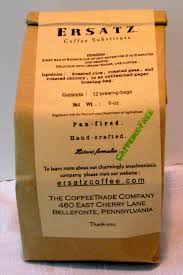
记忆方法
将“ersatz”分解为“er”和“sat”两部分。想象“er”像个小男孩坐在“sat”上,这个场景可以象征替代品或复制品,因为“ersatz”意味着替代物或假冒品。通过这个图像,你可以记住“ersatz”的含义。
以上内容由AI生成, 仅供参考和借鉴
中文词源
ersatz 合成的,代用的
er-, 外面,词源同out,ordeal. -satz, 同set. 即拿出去的,替换掉的。
英语词源
- ersatz (adj.)
- 1875, from German Ersatz "units of the army reserve," literally "compensation, replacement, substitute," from ersetzen "to replace," from Old High German irsezzen, from ir-, unaccented variant of ur- (see ur-) + setzen "to set" (see set (v.)). As a noun, from 1892.
权威例句
- 1. The ersatz spontaneity of "Sunday Love" sounds especially hollow.
- 对《星期天的爱情》这首歌的即兴模仿听起来尤其空洞。
- 2. There were few provisions available in exchange for food stamps: ersatz coffee, macaroni, small cubes of margarine.
- 可以用来换取粮票的食物只有这些:代用咖啡、通心粉和小块的人造黄油。
- 3. Tourists are the ones having the ersatz experience.
- 观光客得到的是一种模拟的感受.
- 4. Ersatz coffee made mostly of chicory.
- 代用咖啡主要是用菊苣做成的.
- 5. It'scarcely seems to matter that most of these schools ersatz affairs with few conventional qualifications.
- 这里绝大多数的学校几乎没有传统的痕迹,因为没有人在意这些.
